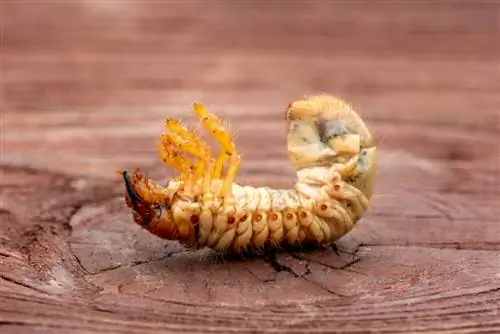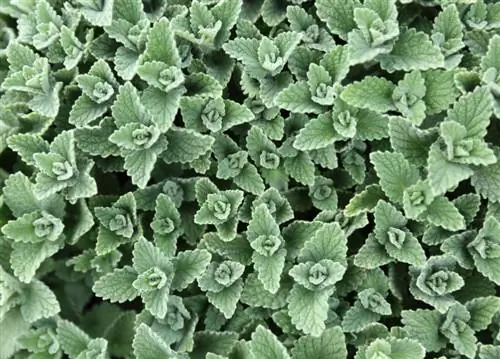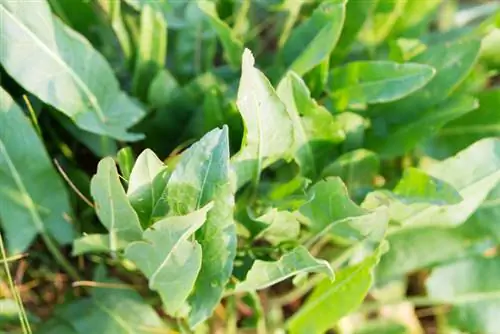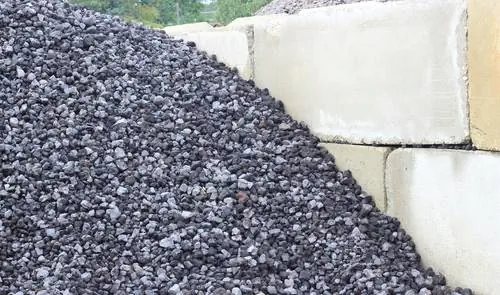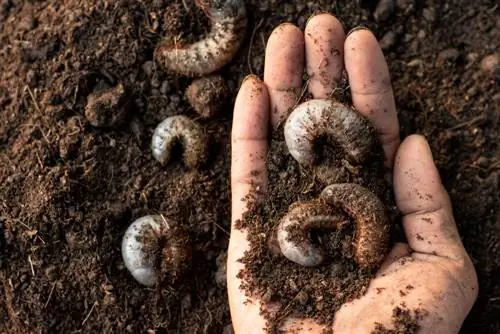- Author admin leonars@hobbygardeners.com.
- Public 2023-12-16 16:46.
- Last modified 2025-01-23 11:22.
Anyone who finds themselves in the rare situation of finding grubs in the garden should first determine whether it is a harmful variety. If so, there are many gentle methods available to combat it. For example, nematodes.
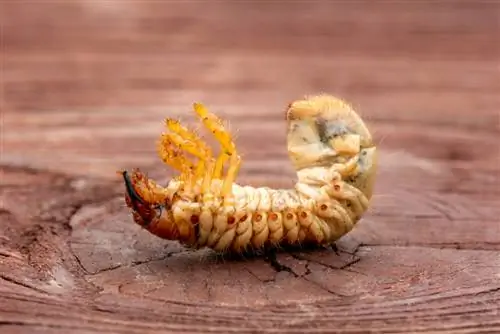
How do nematodes work against grubs in the garden?
Using nematodes against grubs is an effective and gentle method of pest control. Predatory nematodes of the genus Heterorhabditis invade the grubs and kill them with bacteria. The method is particularly effective on June and garden beetles, but less so on May beetles.
No chemicals are needed against grubs
Aside from the fact that large cockchafer invasions like those in the 1950s are a thing of the past and their larvae only appear in moderation today - no chemical violence is necessary against the insects, which are branded as pests. The damage caused by them and the grubs of other beetle species is really moderate these days.
The larvae of beetle species from the superfamily Scarabaeoidea are known as grubs. But only some of it is harmful to garden plants. These include:
- Cockchafer
- June beetle
- Garden leaf beetle
During their 2-4 years of underground development, their larvae eat the roots of living plants, causing them to die. Grasses, i.e. the garden lawn, but also ornamental and useful plants in the bed are particularly affected. You can recognize the damage if the above-ground plant parts look dry and wilted; yellow islands appear in the garden lawn that can be removed by hand.
In order to eliminate the voracious grubs in the ground, it is advisable to first dig in the appropriate places. First, simply collect the larvae. This won't be completely successful - nematodes will help to put an end to the rest.
Nematodes as grub destroyers
Nematodes are roundworms and form a very diverse phylum in the animal kingdom. Some species are a serious pest for gardening and agriculture because they can cause severe damage to entire areas of crops. Others have also been discovered as beneficial insects - because of their parasitic lifestyle.
Nematodes that can be used against grubs are primarily predatory species of the genus Heterorhabditis. They use the grubs as hosts for their reproduction. They penetrate the larvae and release deadly bacteria into their bloodstream.
However, not all grub species are equally well parasitized by nematodes. The method works quite effectively on June and garden beetles, but less well on cockchafers.
Nematodes are available in garden or hardware stores or on the Internet. The nematodes enclosed in clay granules (€18.00 at Amazon) can simply be introduced into the soil via irrigation water.

